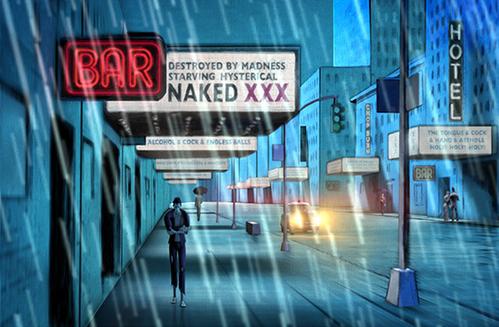

He continued to write and read poetry until his death from liver cancer in 1997. Ginsberg stayed at the forefront of numerous liberal movements throughout his life and became a well-loved lecturer at universities around the country. Howl, which created a literary earthquake among the literary community when Ginsberg first read the poem in 1955, still stands as an important monument to the countercultural fervor of the late 1950s and ’60s. Nine literary experts testified at the trial that the poem was not obscene, and Ferlinghetti was found not guilty. Ferlinghetti was bailed out by the American Civil Liberties Union, which led the legal defense. The publication led to Ferlinghetti’s arrest on obscenity charges. Officials alleged that the book was obscene.Ĭity Lights, a publishing company and bookstore in San Francisco owned by poet Lawrence Ferlinghetti, proceeded to publish the book in the fall of 1956. Customs Department confiscates 520 copies of Allen Ginsberg’s book Howl, which had been printed in England. Says Bilger, “I’m pleased that this important literary work has a place in Reed College’s history, and I was honored to be able to assist in the editing of the liner notes by Reed College professor, Pancho Savery.The U.S. It feels like it was meant to be, since Omnivore had previously worked with the Ginsberg estate.” “The fact that it is the first-ever recorded reading, and that I could be helpful in bringing this historic recording to a broader audience, is thrilling. “It was wonderful to discover that a tape existed of Ginsberg’s reading of Howl at Reed College,” Pawelski tells Variety. Using her existing connections with the Ginsberg estate, Pawelski sent the tape to Grammy Award-winning engineer Michael Graves to have it transferred, restored and mastered. Omnivore already had history with Ginsberg, having released “The Complete Songs of Innocence and Experience” in 2017 and “The Last Word on First Blues” in 2016. Bilger happens to be married to Cheryl Pawelski, the Grammy-winning co-founder of Omnivore Recordings, who had moved to Oregon herself upon Bilger’s appointment.

But it was to still go unheard to the general public until a Hollywood-Oregon connection made its release inevitable.

Army troops to Little Rock, Arkansas, to enforce desegregation in public. (1955) Supreme Court rules that bus segregation is illegal (1956) Voting Rights Bill passed by Congress (1957) President Eisenhower sends U.S. Its discovery made the news after being verified the following year. Allen Ginsberg, Howl (1956), Sunflower Sutra (1956), A Supermarket in California (1956), Kaddish (1959). The tape went forgotten until 2007, when author John Suiter found it in a box at Reed’s Hauser Memorial Library while doing research on another poet who read at the college that day, Gary Snyder.


 0 kommentar(er)
0 kommentar(er)
